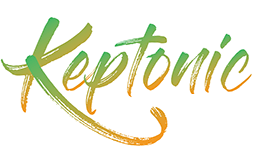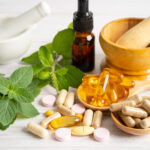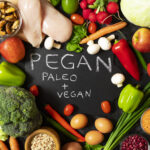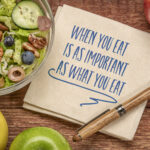Did you know that the majority of the ingredients in packaged products you buy are harmful to your health? In this article, I focus on some of the harmful ingredients to look out for when shopping. If you see these ingredients on a product label, run the other way.
Since I became a mother, I’m taking what I eat and cook for my family very seriously. I find myself questioning every ingredient I see on processed products. Whenever I go shopping, I make sure to read product labels and when I see certain words, I move on to another alternative. Now, you may think I’m overreacting, but wait until you get to the end of this article.
A lot of research shows that continued use of certain products leads to inflammatory diseases, diabetes, kidney failure, heart disease and even cancer. From my nutrition training and own research, I have found that some products actually poison your body. I get it… these ingredients serve a purpose, such as preserving your food. But are they worth the risk? If you had an alternative to eat natural, unprocessed, unpreserved foods, would you go for foods with ingredients that require a chemistry degree to understand, let alone pronounce?
In this article, I’m going to focus on some of the ingredients that are a no-no for anyone interested in living a healthy life.
Sugar free?
Anytime you see these two words together on a product, read the ingredient list very carefully. Just because a label says “No-carb” or “low carb” or “sugar free”, doesn’t mean it is necessarily so.
See, the big company that manufactured the “sugar free” product you are about to buy has cleverly hidden other carbs in the long words on the ingredient list. These crafty manufacturers do so to make it look like their product is low in carbohydrates, so that customers who are concerned with sugar can buy those products. To add insult to injury, food manufacturers also use other types of sugar so they can legally call their junk “sugar free”.
The bottom line: SUGAR FREE DOESN’T MEAN CARB FREE. Let’s break down some of the ingredients you’ll find on product labels and I’ll tell you all about what those words mean.
Sugar free corn syrup
Sugar is defined as something called “sucrose” which is made from two types of carbohydrates: half fructose, half glucose. Therefore, any sweetened product can be legally called “sugar free” because the corn syrup does not fit the legal definition of “sugar”.
Yeah…I know…your sugar free yoghurt, which is supposed to be good for your gut bacteria, is actually doing the opposite. Gut bacteria feed on sugar and so do cancer cells. It’s how they thrive.
While you ponder on that, let’s introduce culprit number two: Maltodextrin.
Maltodextrin
Maltodextrin is a cheap carbohydrate made from starches. It is used in sugar substitutes to bulk them up). It is also added to foods to improve their texture and flavour and to prolong their shelf life.
Maltodextrin has a higher glycemic index than sugar! The glycemic index is a measure of how a food affects your blood sugar. Maltodextrin has a glycemic index of 110 while regular old table sugar comes in at 65; just a little over half the glycemic index of maltodextrin! In other words, Maltodextrin will raise your blood sugar more than table sugar itself!
Maltodextrin is bad for your gut, plain and simple. An article on Medical news today lists the following dangers of consuming foods with maltodextrin:
• Maltodextrin increases the quantity of gut bacteria while reducing good bacteria. This could result in inflammatory bowel diseases.
• It also causes Escherichia coli bacteria to thrive. This bacteria has a role in the development of a gut condition known as Crohn’s disease.
• Salmonella bacteria, which is linked to gastroenteritis, also feeds on Maltodextrin.
Hydrogenated oil
Hydrogenated oil is present in most foods you buy: Margarine, vegetable oils, baked goods, ready-made dough and even your coffee creamer. The word “hydrogenated” means “Trans Fat”. Trans Fats will raise your bad cholesterol and lower your good cholesterol. This stuff is very bad. Every time you see “partially hydrogenated” or “hydrogenated” on a food label, again, run the other way.
Going forward:
1. Don’t use powdered coffee creamers like “Coffee Mate” or “Cremora”. There is no “Cream” in them, only corn syrup sugars and trans-fat oils. Use alternatives such as unsweetened Almond Milk or Coconut milk.
2. Avoid all vegetable seed oils like canola, vegetable, soybean, palm, corn and cottonseed oil.
By the way, hydrogenated oils are processed through a whole range of stages, including bleaching and deodorizing. Why would you want to put that in your body?
Agave
If you thought agave was good for you, sorry to break your bubble. It just isn’t. Unlike regular sugar which is 50% fructose, agave can have up to 90% fructose. That is just bad for your insulin levels. More so, too much fructose will raise blood triglyceride levels and result in liver damage.
Conclusion
So that’s it! I know that these are hardly all the harmful ingredients you’ll see on products but hopefully, they’ll get you started in the right direction. Just because certain authorities say “acceptable levels” doesn’t mean you should ignore the dangers lurking on those product labels. If you notice these ingredients, go with an alternative that is good for your health.
Better yet, eat natural foods that don’t have an ingredient list. Eat real, clean, wholesome food! Avoid processed and artificial food!
Healthy Food, Happy Life Jessy




